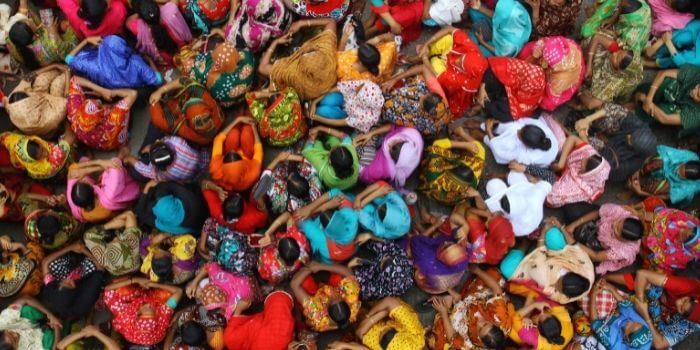Today we tell you about the changes that are taking place in the textile industry in Bangladesh and the options for Spanish companies to export to this country.
Bangladesh is a state that emerged in 1971 after the Bangladesh Liberation War that ended with the independence from Pakistan. Located in Southeast Asia, the country has a population of 163,046,161 million people, according to 2019 World Bank data.
Globalisation, driven by the technological revolution, has allowed large companies to offshore certain processes in the manufacture of their products. This can reduce costs and risks and is a very attractive method for capital-intensive companies.
This has been the case in the textile industry, where production plants have been relocated or outsourced to foreign companies to manufacture products.
Although many things are changing, it is true that historically, Western countries have taken advantage of the lack of regulation in certain countries which, due to their lack of economic development, have not been able to guarantee the human rights and labour rights of their citizens.
Bangladesh has thus been an ideal country for this business activity due to the scarce labour guarantees and population density, making it the most attractive country for large multinationals to relocate to. But this is changing.
Turning point
On 24 April 2013, an incident took place that outraged international public opinion and marked a turning point in the textile and garment industry in Bangladesh.
On that day, Sohel Rana, owner of Rana Plaza, used intimidation and forced his employees to enter and work in the building, which safety inspectors had classified as dangerous due to poorly maintained infrastructure. The outcome of this tragic story was the death of 1,134 people (Oxfam, 2017).
Structural changes in the textile industry in Bangladesh
Since then, due to public pressure, structural changes have taken place in the textile industry. Within weeks of the fatal accident, several companies located in Bangladesh, including the Spanish company Inditex, decided to implement the Fire and Safety Accord.
More than 200 companies obliged themselves to assume the responsibilities that this agreement established.
The International Labour Organisation (ILO) sent a mission to the country to work with the government and the companies established there to achieve a higher quality of supervision and protection of human and labour rights.
Since then, the government has implemented several safety and quality of work regulations and companies have welcomed them to ensure the welfare of their employees and to set minimum standards in the protection of labour rights.
The most notable reforms in recent years have been the improvement of the level of inspection in production plants to ensure greater safety for workers.
In addition, fire services have been reinforced to improve the response to any incident and the contracting of occupational insurance for possible incidents and health care for workers is being encouraged.
The most recent measure, which promises to further improve labour guarantees in the country, is the signing of an agreement between the International Labour Organisation (ILO) and the Bangladesh Garment Manufacturers and Exporters Association (BGMEA) in January 2022.
With this new regulation, companies with more than 50 employees will be obliged to set up and operate a Safety Committee in the company and provide training to employees on occupational safety.
Bangladesh, a new textile industry
Bangladesh is making progressive improvements in its regulations and is willing to work with international organisations, employers and trade unions to make the country a textile industry that guarantees workers’ safety, human and labour rights.
It is to be hoped that they will continue to implement substantial changes and become an example for those countries hosting offshoring processes.
Exporting to Bangladesh
In the current environment, the possibilities of exporting to Bangladesh are varied, for example exporting components for the manufacture of textile garments, machinery, packaging or chemical products. And from Oftex, export consultants, we can help you.
If you want to know more information about the textile industry in Bangladesh you can visit:
For more information on how we can help you with our export consultancy services visit: https://www.oftex.es/contacto/ or fill in the form below.
